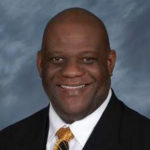A former Southern Baptist Convention leader who made the motion to sever ties with the Baptist Joint Committee on Religious Liberty at the SBC annual meeting in 1990 now says it might be time for Southern Baptists to “call it a day” for the convention’s Ethics and Religious Liberty Commission.
William “Bill” Harrell, chairman of the SBC Executive Committee subcommittee that recommended separating from the pan-Baptist religious liberty coalition and expanding work of the renamed Christian Life Commission by opening an office in Washington, said recent election results point to an ERLC out of touch with its constituency.
Harrell, retired pastor of Abilene Baptist Church in Martinez, Ga., said in a Nov. 17 blog linked by the Louisiana Baptist Message website that leaders of the agency entrusted with lobbying on behalf of issues important to Southern Baptists “must have egg all over their faces” after months of speaking out against President-elect Donald Trump.
During the presidential campaign, ERLC President Russell Moore suggested that faithful voters should consider voting for a third-party or write-in candidate instead of marking the ballot for a “lesser of two evils.” He also voiced concern about evangelical leaders who “have tossed aside everything that they previously said they believed in order to embrace and to support the Trump candidacy.” At one point Trump lashed out in a tweet describing Moore as “truly a terrible representative of evangelicals” and a “nasty guy with no heart.”
With polls showing that 81 percent of white evangelicals voted for Trump, Harrell said ERLC leaders “were almost completely out of touch with the reality of how the people felt.”
Harrell, who served on the Executive Committee twice for a total of 16 years and as chairman in 2006-2008, said the ERLC was “intended to represent the views of the people of the SBC” but somehow over time “has become a divisive entity in our midst.”
Harrell said “let’s call it a day” — a phrase from his youth signaling completion of a final task at the end of a working day — is also true for organizations.
“Every institution or group was founded to meet a certain need and, for the useful life of that institution or organization, it focused on its purpose,” Harrell said. “If and when that purpose was no longer a valid reason for its existence, it would cease to exist.”
“We have just such a situation in the Southern Baptist Convention today,” he said.
“Quite frankly, the ERLC is causing more disturbance than it is serving us in a positive way and addressing the opinions of the people of the SBC,” Harrell said. “Many feel it would serve us better if we ceased to fund this entity. In fact, it has been reported to me that there are a number of pastors, particularly from larger churches, who are seriously considering escrowing their Cooperative Program funds until something is done about this entity of ours.”
Several comments posted on Harrell’s blog defended Moore’s leadership of the ERLC. Some said Moore’s criticism of Trump isn’t all that different from an SBC resolution passed during Bill Clinton’s presidency affirming “that moral character matters to God and should matter to all citizens, especially God’s people, when choosing public leaders.”
One commenter — a prominent African-American pastor who said before the election he hadn’t voted for a Democrat for president since Jimmy Carter but was going to cast a ballot this time for Hillary Clinton because he believes violence against black men is the most pressing sanctity-of-life issue of the day — said he doubts Harrell speaks for a majority of white Southern Baptists but for sure “does not speak for the majority of blacks, Hispanics and Asians in the SBC.”
“SBC is no longer an all-white Southern Confederate sympathizing organization,” said Dwight McKissic, pastor of Cornerstone Baptist Church in Arlington, Texas. “This article sounds like it is, because that’s who Donald Trump is.”
McKissic said Moore “has preserved the credibility of the SBC” and “would become a martyr if he’s fired for his biblical opposition to Trump.”
Harrell said presidential politics isn’t the only thing raising concern about the direction of the ERLC.
“The Bible specifically condemns the act of homosexuality, but the ERLC has made several statements which suggest the convention should rethink and adjust their stance on that which God roundly condemns in the Old Testament and the New Testament as well,” he said.
Harrell said a lot of people complaining privately hesitate to speak out in public because they don’t want to be labeled a “troublemaker.”
In January, Baptist Message Editor Will Hall penned an editorial — “Does the ERLC represent the SBC?”— discussing not only Moore’s opposition to Trump but also “a penchant for disdain for Christians who think differently than him.”
In July, a group of eight Baptist leaders from the New Orleans Baptist Association released an appeal for unity denouncing “buzzard” politics in the Louisiana Baptist Convention and asking “do we want to continue to read editorials in our state Baptist paper critical of SBC agency presidents?”
“Since I am the one who made the motion to create our lobbying office in Washington and also the motion to fund it, many have asked that I write such an article as this one,” Harrell said. It has not been a pleasant task. But, the ERLC was intended to represent the views of the people of the SBC. It was not meant that it would evolve to become a platform for its president and his friends to use as a political tool to try to influence people to do as they wish.”


